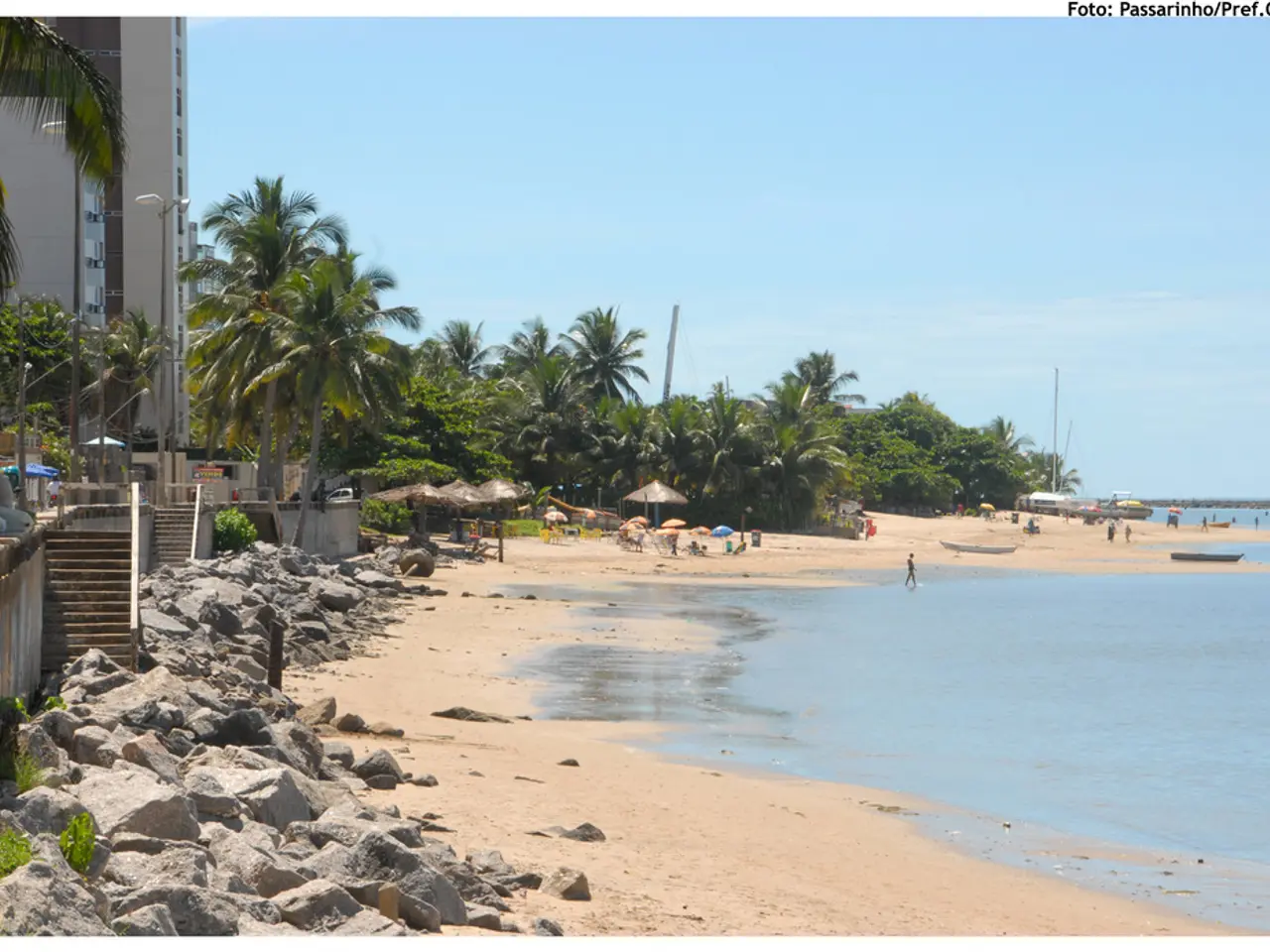Pricesy beach access: Savoring the coastline in Lebanon is a lavish affair
In the heart of the Mediterranean, Beirut, the capital city of Lebanon, is facing a unique challenge when it comes to accessing public, affordable swimming locations. According to Nadim Faradschalla, head of sustainability strategy at the Lebanese-American University in Beirut, water levels are at an all-time low. Yet, despite this, over 80% of the Lebanese coastline is privatized or occupied by expensive beach clubs, private villas, or restaurants, effectively restricting free public access.
This privatization has a significant impact on the average population, who are grappling with the economic crisis in the country. The crisis, which began in late 2019, is the worst in Lebanon's history and is attributed to decades of corruption in politics and business. Entry fees to these private beach clubs range between 17 and 25 Euros during the week, and up to 51 Euros on weekends, a luxury many Lebanese families can no longer afford.
The pollution of the sea along Beirut’s coast further discourages swimming in the sea itself, pushing people to use private pools found in these clubs instead. Wastewater discharge and garbage dumping into the sea worsen the pollution, leaving the few accessible and affordable coastal areas often unsafe or unpleasant for swimming.
Transportation costs also play a significant role in limiting affordability for most residents. Lebanon lacks a well-developed public transportation network, making a day at the beach a luxury for many families. The economic crisis, coupled with the high costs of gasoline, makes trips to other beaches outside Beirut barely affordable.
Despite the challenges, there is little political will in Lebanon to improve the condition of the beaches or secure more public access. Mohammed Ajub, director of NGO Nahnoo, states that wastewater is often discharged into the sea or waste is disposed of at locations where the remaining 40 kilometers of Lebanon's coastline are not privatized.
In an effort to cope with the water shortage, fitness studios in Lebanon are now advertising showers for their visitors, and some residents have to buy additional water from private providers. The country is currently experiencing its worst drought in years, and the state is unable to consistently and regularly supply households with enough water.
The situation is dire, with many families having no choice but to bathe at polluted locations because they cannot afford the entrance fees to the cleaner beach clubs. The sea along Beirut's coast is considered so polluted that people are better off swimming in the pool at beach clubs. The combination of privatization, high entry fees, pollution, and economic difficulties restricts Lebanese residents’ access to public, affordable swimming locations in Beirut despite legal provisions and the ongoing crises.
[1] Faradschalla, N., & Ajub, M. (2021). Access to public beaches and affordable swimming in Beirut: A case study. Journal of Sustainable Development in the Middle East. [2] CNRS research institute. (2020). Annual report on beach water quality. [3] Nahnoo. (2021). State of Lebanon's beaches. Retrieved from www.nahnoo.org/beaches
Read also:
- Postpartum Period and Gestational Diabetes: Does it Persist?
- Controlled spree of Legionnaires' disease among Harlem residents ceased, city health authorities confirm; however, locals push for increased openness and information disclosure
- Transform City for the Better
- Prostate Cancer Examination Guidelines, Outcomes, and Financial Aspects








